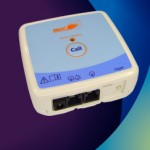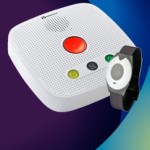Essential First Aid measures to assist someone experiencing a seizure

Introduction:
Epilepsy is a neurological disorder characterized by
recurrent seizures, and being prepared with the right knowledge can make a
significant difference in ensuring the safety and well-being of individuals
with epilepsy. In this blog post, we will discuss essential first aid measures
to assist someone experiencing a seizure.
Understanding Epileptic Seizures:
Epileptic seizures can manifest in various ways, from brief
lapses in awareness to convulsions and loss of consciousness. It's important to
note that most seizures are brief and self-limiting, but proper first aid can
help prevent injury and ensure a smoother recovery.
Stay Calm and Assess the Situation:
The first step in providing first aid for epilepsy is to
stay calm. Assess the surroundings to identify any potential hazards, such as
sharp objects or hard surfaces. Remove these if possible, to create a safer
environment.
Time the Seizure:
Keep track of the seizure's duration. Most seizures last for
a short period (less than 2 minutes). If a seizure lasts longer than 5 minutes,
or if another seizure begins immediately, seek emergency medical assistance.
Protect the Head:
Gently guide the person to the floor to prevent injury.
Place something soft, like a folded jacket, under their head to cushion it and
protect against injury.
Turn the Person onto their Side:
Once on the ground, turn the person onto their side. This
helps keep the airway clear and allows any fluids to drain from the mouth,
reducing the risk of choking.
Do Not Restrain:
Avoid restraining the person during a seizure. Contrary to
popular belief, holding someone down or putting objects in their mouth can lead
to injuries. It is essential to let the seizure run its course.
Stay with the Person:
Stay with the person until the seizure is over. Once the
seizure ends, the person may be confused or disoriented. Offer reassurance and
help them to a comfortable position.
After the Seizure:
After the seizure, check for injuries and offer assistance
as needed. If the person is having difficulty breathing or the seizure
continues for more than 5 minutes, call for emergency medical help.
Provide Emotional Support:
Epilepsy can be emotionally challenging. Offer support and
understanding to the person after the seizure. Be patient and help them
reorient themselves to their surroundings.
Conclusion:
Knowledge of first aid for epilepsy is crucial for anyone
who may find themselves in a position to help during a seizure. By staying
calm, taking appropriate steps to ensure safety, and offering support, you
contribute to a more supportive and secure environment for individuals living
with epilepsy. Education and understanding go hand in hand with effective first
aid, creating a community that can respond confidently and compassionately to
those experiencing seizures.





